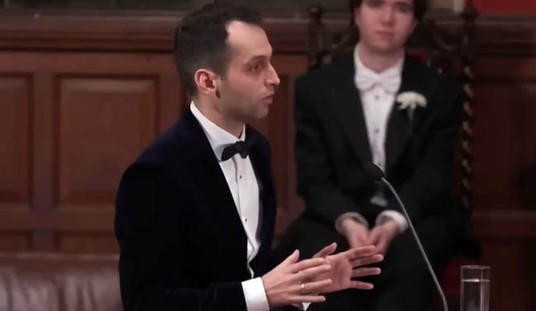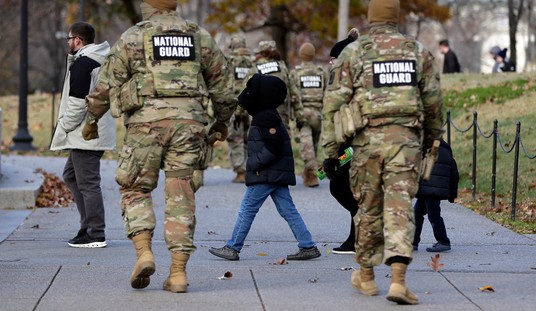Get ready for some high-profile questions into the debacle of the Benghazi terrorist attack this week, as Congress returns from its election break. The Hill reports that five separate committees will hold hearings or briefings on the sacking of the consulate and security decisions made before and during the attack, to get responses to “questions that remain largely unanswered”:
No fewer than four House and Senate panels plan to hold closed-door briefings with administration officials about the attack this week, while one committee is holding a public hearing. Members of both parties say they expect the Benghazi probe to last well into Obama’s second term. …
The congressional panels holding closed-door briefings with administration officials are the Senate Foreign Relations Committee (Tuesday), the Senate homeland security panel (Wednesday) and the House and Senate intelligence panels (Thursday). State Department officials are scheduled to brief the chairmen and ranking members of several House committees with jurisdiction over national security.
Perhaps they can start by asking the White House who made the decision to rely on local militias for the defense of the consulate. McClatchy asked other diplomats still in Benghazi about their own security preparations, and all of them professed to be mystified by the American decision to buy local:
Even before the deadly Sept. 11 attack on the U.S. consulate that killed Ambassador Christopher Stevens and three other Americans, diplomats from other nations and Libyan security officials had questioned the wisdom of a U.S. decision to rely primarily on members of a local militia to protect its compound here.
Diplomats here told McClatchy that while it’s customary to depend on local forces to protect diplomatic missions, only the United States of the 10 or so foreign missions here allowed the local militia to be the first line of defense. The others said they instead depended on military forces from their own country to provide security.
“A few months ago, there was a small attack here and the Libyans fled,” said a diplomat from a European nation who asked that he not be further identified so that he could speak candidly about his assessment of security here. “After that, I decided to only use special forces” from his own country.
“We never considered using the brigades,” he said, referring to the 17th of February Brigade, the local militia that was considered the primary security force for the U.S. mission. “We assumed the United States had a special relationship with the brigades.”
Said another diplomat who requested anonymity for the same reasons: “I would never depend on the brigades.”
In fact, the security situation in Benghazi had degenerated into a turf war between competing militias and terrorist groups long before the assault on the American consulate, emphasis mine:
On Wednesday, during a ceremony honoring Stevens, Secretary of State Hillary Clinton said that the administration has, in the wake of the 9/11 attack, dispatched a joint State and Defense Department task force “to review high-threat posts to determine whether there are other improvements we need in light of the evolving security challenges we now face.”
Diplomats here, however, say they believe one such improvement had become obvious in the months after a NATO air campaign helped topple the government of longtime Libyan leader Moammar Gadhafi: Don’t expect local forces to protect you when they can’t even protect themselves against local extremists and terrorists groups in a city now defined by reprisal attacks. In the past week alone, two police stations here were bombed and a police colonel’s patrol car was destroyed in front of his house; extremist groups seeking to wrest control of the city are the suspected culprits.
In that kind of environment, selecting a militia to provide security not only brings an unreliable partner into the consulate, it compounds the hostility by choosing sides in a gang war. One might think that a “smart power” administration might understand that consequence of their own decapitation strategy in a part of the country where terrorist networks operate openly and with impunity. Instead, despite months of warnings from Tripoli and Benghazi about this very situation, the State Department apparently did nothing to address the problem, leading to the inevitable result.
This should be on Congress’ front burner, after the death of four Americans in an utterly predictable and preventable failure. With Barack Obama safely re-elected, maybe the media will finally put it on theirs, too. Meanwhile, Fox produced a timeline yesterday that prompts even more questions:
The Defense Department timeline on the night of Sept. 11 begins at 9:42 p.m. local time and states, “The incident starts at the facility in Benghazi.”
Right from the start, the Pentagon and the CIA timelines do not match. (The CIA timeline, which was released on Nov. 1, states that at 9:40 p.m., “A senior State Department security officer at the U.S. Consulate in Benghazi called the CIA annex and requested assistance.”)
A source at the CIA annex that night told Fox News that when they first asked to go and help, they were told to wait.
Within 17 minutes of the start of the attack, AFRICOM commander Gen. Carter Ham, who happens to be visiting Washington and was in the Pentagon that day, redirects an unarmed, unmanned drone to Benghazi. …
At 10:32 p.m. (4:32 p.m. in Washington), 50 minutes after the incident began, the National Military Command Center, which is the operations center at the Pentagon where Ham is overseeing the operation, notifies Defense Secretary Leon Panetta and Joint Chiefs of Staff Chairman Gen. Martin Dempsey.
That means for nearly an hour, no one told the defense secretary and Joint Chiefs chairman that a U.S. ambassador is in peril and his personal security officer has pressed his “personal distress button” which sends an SMS signal back to the command authority in the U.S. and a U.S. embassy has been overrun by attackers.
A CIA team left for the consulate at 10:04 p.m. — 28 minutes before the Pentagon says Panetta and Dempsey were told the attack had occurred.
Sources at the CIA annex in Benghazi told Fox News in an interview on Oct. 25 that they asked permission to leave for the consulate immediately and twice were told to wait. The CIA says the base chief was trying to arrange Libyan help.
Be sure to read it all.









Join the conversation as a VIP Member